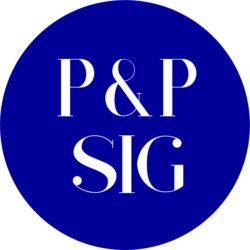Proceedings-1997; By Thomas F. Moran; Summary by Maria Christophel (2006)
This article presents The Technical Writing Machine as a model for teaching students to develop troubleshooting procedures. It indicates the reasons for creating the model and the benefits derived by its use. It presents a diagram of the model and explains the flow and its different components. The application of the model produces malfunctions systems for which strategies for problem solving must be written.
Policies and Procedures – Opportunities Await Technical Communicators
Intercom-November 2005; By Raymond E. Urgo; Summary by Maria Christophel (2006)
This article discusses the various opportunities that await technical communicators in the world. It explains the reasons policies and procedures documentation is awakening interest in the business community. It provides a clear hierarchy of talents and skills required to achieve a career in policies and procedures documentation.
Who Should Document Organizational Policies & Procedures
Proceedings-2002; By Raymond Urgo; Summary by Maria Christophel (2006)
This article addresses the typical situations and the typical solutions that organizations follow when documenting operational policies and procedures. It explains the unrealistic demands placed on employees and the effects of non-participation in the development of procedures. It also explains the common solutions such as hiring a writer, developing a program for employee participation, and training employees to write procedures. The article comments on the need to establish a team among supervisors, management, employees, and the stakeholders to support the efforts of a technical writer with writing and editing skills for producing performance-based communication.
Technical Writing in the Financial Industry
Intercom-April 2005; By Sandy J. Larsen; Summary by Maria Christophel (2006)
This article establishes the job requirements placed by the financial industry when hiring technical writers making them practically unable to qualify for the job. The author proofs through research that several writers have entered the financial field as writers with no knowledge of banking, finance, or mergers and have become successful. The author states that it is possible for qualified technical writers to transition into another field of expertise by volunteering services and becoming formally or informally educated in the field the writers want to work.
Standards – New Opportunities for P&P Writers
Intercom-November 2005; By Ralph E. Robinson; Summary by Maria Christophel (2006)
This article discusses in detail the reasons why international standards are opening new opportunities for P&P writers, and how writers should take advantage of such opportunities. The author explains how the International Standards Organization (ISO) creates standards for global industries and why is good for business to comply with ISO requirements. Why are they important; he also provides a great deal of information about how international standards impact on P&P professionals.
Sarbanes-Oxley and New Opportunities
Intercom-January 2004; By Holly E. Harkness; Summary by Maria Christophel (2006)
This article presents the reasons why the Sarbanes and Oxley Act offers technical writers career opportunities similar to those offered by Y2K. It defines the Sarbanes Oxley Act (SOX) and notes that public owned companies are required to comply with the regulation and therefore, some companies are spending millions in their projects. The articles provides a br /ief background of how the author’s team became involved with the project and it notes that the team wrote polices, procedures, processes, etc. The role of the technical communicator offers opportunities for demonstrating skills such as creating processes, identifying gaps, documenting controls, updating documents, etc. The article advises that to get started a technical writer should emphasize experience writing policies and procedures, and the knowledge of SOX and its interpretation.
Policies and Procedures – An STC Niche
Intercom-November 2005; By Raymond E. Urgo; Summary by Maria Christophel (2006)
This article explains the creation of the P&P Special Interest Group (SIG) as the first body in the world for offering assistance to policies and procedures technical writers.
Marketable Skills for the Policies and Procedures Professional
Proceedings-1995; By Raymond E. Urgo; Summary by Maria Christophel (2006)
This article provides a brief insight in the various skills that are required from Policies and Procedures writers. The article states that technology advancements and work force reduction require writers to acquire or become stronger in their marketing, managerial, analytical, instructional, communication, and people skills.
Managing a Company-Wide Policies and Procedures Project
Proceedings-1996; By William B. Crepes; Summary by Maria Christophel (2006)
This article discusses three important factors that must be considered when managing the documentation of policies and procedures company-wide without a disruption to business operations. The people factor section explains the reasons and methods for involving executive management in the project, and gaining the acceptance of the employees. The project factor section explains the methods for establishing scope, priorities, scheduling, and prototype development. The publishing factor explains the reasons for analyzing audiences, making documentation recipient lists, and controlling the distribution.
Full-Employment Legislation for Technical Writers
Proceedings-1993; By Carolyn Dean; Summary by Maria Christophel (2006)
This article narrates the scenario the Author experienced when she began working on a project to implement regulations in a nuclear facility. It lists the different opportunities regulations provide to technical writers; policies and procedures development is counted among these opportunities. It explains how writers can take advantage of these opportunities created by legislation by advising to get immersed into the regulation and taking a related class.
